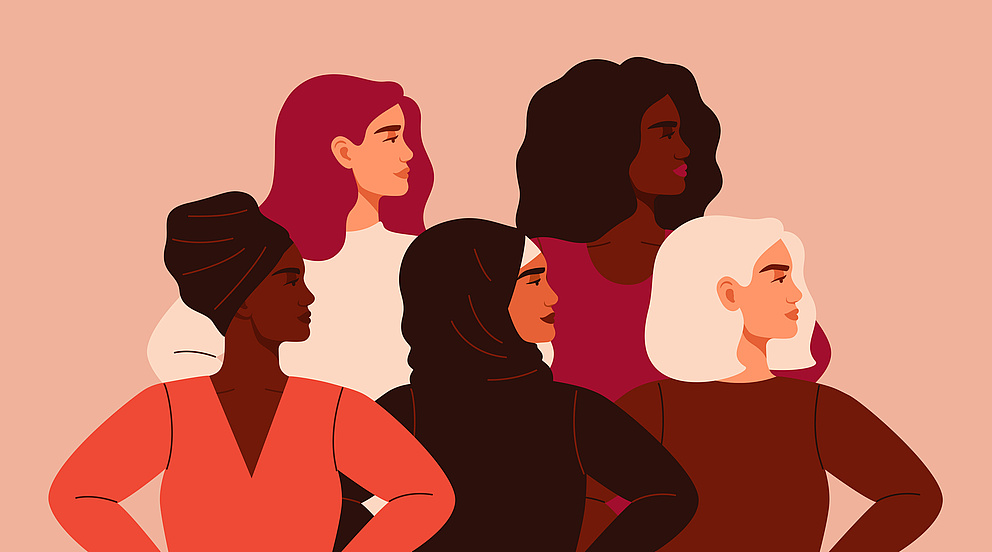

Contact
Press, Communications and Marketing
Tel.: +49 228 833-144
Fax: +49 228 833-441
presse[at]avh.de
„What do we know about the potential of female researchers worldwide who could potentially be won over for a research stay in Germany? What needs do they have that must be accommodated if they are to be internationally mobile in their research work? And what might hinder them from doing this? The Center of Excellence Women and Science (CEWS) at the GESIS Leibniz Institute for the Social Sciences recently examined Access, Barriers and Potential of Female Scholars and Scientists with respect to International Mobility on behalf of the Alexander von Humboldt Foundation. The results of the potential and needs analysis have now been released.
The study analysed data regarding the research and university systems and women’s participation in them in 14 countries around the world, including Spain, Poland, South Africa, Nigeria, India, the USA and Chile. In parallel with this, the study examined gender-specific aspects of selected Humboldt Foundation programmes and developed recommendations for action aimed at attracting greater numbers of highly qualified women for a research stay in Germany and for the Foundation’s network.
“Promoting full diversity is one of our core strategic goals”, commented Hans-Christian Pape, President of the Humboldt Foundation. “In order for it to jointly push back the boundaries of our existing knowledge, excellent research needs diversity of perspectives – this means not only gender diversity, but also diversity in terms of nationality, culture, lifestyle and social and personal backgrounds”, he stressed. Gender equality and equality of opportunity are core elements of the Foundation’s efforts to increase diversity. “The study shows that barriers exist with which female researchers in all of the countries examined find themselves confronted. Parallel to this, there are needs and potentials that we have not yet taken into sufficient account – neither here at the Humboldt Foundation nor in the science system in Germany”, Pape continued.
For example, the provision of care work in the family is one barrier facing women wanting to become internationally mobile. At the same time, the study points out that women are often not even considered for international research stays due to the practice of attributing care work to women and the assumption that they are unable to undertake a research stay in another country due to family responsibilities. Institutional hurdles in the countries of origin – such as positions that have fewer resources at their disposal and are not as well remunerated as those for men, and precarious employment – can likewise hinder women from becoming internationally mobile, also because a temporary absence could jeopardize one’s career in one’s home country.
Another finding from the study is an accumulation of homosocial collaboration: International female researchers tend to be invited by women, while men collaborate more frequently with men. This pattern can also be observed in the Humboldt network. At the same time, there are too few dual career options for the group of highly qualified, internationally mobile female researchers who often have no children and no “portable partner”, but rather partners with a profession and career of their own which have to be taken into consideration and coordinated with a research stay abroad.
“In our view, it is important that we widen our focus beyond addressing and promoting women and look more at the structural and institutional causes and hurdles in science systems”, said Andrea Löther, project lead at CEWS. “When it comes to questions of access, hosts also play an important role: Here, we see potential for recruiting more female researchers and professors from Germany to be academic hosts and, at the same time, for continuing to encourage men to be more aware of international female researchers and their potential as partners in collaborative projects”, noted Löther. One example for new paths for access is the Henriette Herz Scouting Programme, which the Humboldt Foundation launched in 2020. Through this programme, academic hosts can directly recruit up to three international junior researchers for a fellowship and win them over for the Humboldt network. The programme requires that at least the first fellowship goes to a female researcher. Löther also recommended that the Humboldt Foundation continue to examine the relationship between scientific excellence and diversity: “Excellence is not a neutral concept”, Löther stressed. “Women are less likely to perceive themselves as being excellent. However, this also works in the opposite direction: When it comes to recognising research performance, it has been proven that excellence is ascribed to women less often than to men.
The Foundation is currently examining the findings and recommendations for action from the potential and needs analysis on a cross-departmental basis. They will be incorporated into the implementation of the Agenda for Embracing Diversity. With this Agenda, the Humboldt Foundation has committed itself to actively promoting diversity in all areas of the Foundation’s activities. A reflection of the concept of excellence and of the relationship between scientific excellence and diversity provides the starting point for this work. With its #ProgressDiversity campaign the Humboldt Foundation is also working to raise awareness of the importance of diversity in science and research and draw more attention to this issue while, at the same time, striving to continuously increase diversity, gender equality and equality of opportunity .
Further information about the findings plus dossiers on the 14 countries examined for the study with information about their university and career systems, women’s participation and exclusion mechanisms found in the research system can be found here.
(Press release 6/2022)
Every year, the Alexander von Humboldt Foundation enables more than 2,000 researchers from all over the world to spend time conducting research in Germany. The Foundation maintains an interdisciplinary network of well over 30,000 Humboldtians in more than 140 countries around the world – including 63 Nobel Prize winners.
